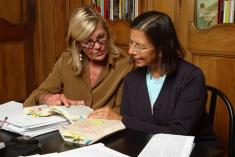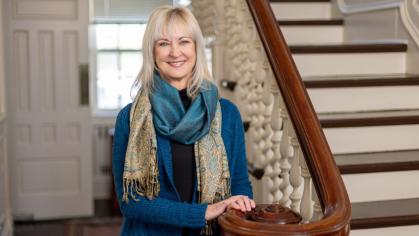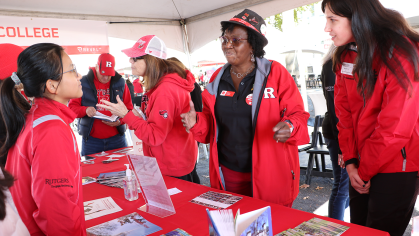From Douglass to Feminist Leadership: Sheila and Constance’s Journey to The Second Sex

Sheila Malovany-Chevallier DC'63 and Constance Borde DC’63 have dedicated their careers to feminist scholarship and advocacy—a path that began at Douglass College and led them to their groundbreaking translation of Simone de Beauvoir’s The Second Sex.
Sheila and Constance’s time at Douglass College laid the foundation for their future work in feminist discourse.
“At Douglass, we were constantly encouraged to question, to challenge, and to push beyond conventional thinking,” Constance recalls. “It was an environment that nurtured strong women and prepared us for the world beyond.”
Both Sheila and Constance credit Douglass with instilling in them a passion for critical inquiry and a commitment to gender equity.
“We were surrounded by brilliant, ambitious women,” Sheila reflects. “That energy, that intellectual curiosity, stayed with us as we moved forward in our careers.”
Years later, Sheila and Constance took on the monumental task of re-translating The Second Sex, determined to restore Beauvoir’s full voice for English readers.
“The previous translation was lacking in so many ways,” Sheila explains. “Entire sections were omitted, nuances were lost. We wanted to restore Beauvoir’s voice, her precision, her radicalism.”
For Constance, the translation was deeply personal. “We understood the gravity of the task,” she says. “Beauvoir’s work had shaped feminist thought for generations, and it was crucial that English readers experience the text as she intended it.”
Sheila and Constance’s dedication to feminist scholarship and activism continues to reflect the values they cultivated at Douglass. Their careers have spanned education, writing, and advocacy—each step informed by the lessons they first learned at their alma mater.
“Douglass gave us confidence,” Sheila asserts. “It taught us that our voices mattered, that we had something valuable to contribute.” Constance agrees, adding, “Even now, when I think about the work we’ve done, I see Douglass in it. The encouragement, the intellectual rigor—it all traces back to our time there.”
From the classrooms of Douglass to the pages of The Second Sex, Sheila and Constance exemplify how a Douglass education can shape bold, feminist leaders whose impact spans generations.


